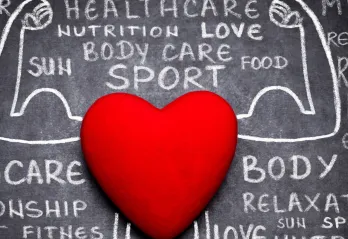Heart Health: Why It Matters and How to Improve It

Your heart is the engine of your body, pumping blood, oxygen, and nutrients to keep everything running. A strong heart means more energy, better endurance, and a lower risk of serious health problems like heart disease, high blood pressure, and stroke.
The good news? Heart health is in your hands—small daily habits can make a big difference.
Why Heart Health Matters
Heart disease is the leading cause of death worldwide (World Health Organization, 2023). It doesn’t happen overnight but builds up over time due to factors like:
- Poor diet (too much processed food, sugar, and unhealthy fats)
- Lack of exercise
- Stress and poor sleep
- Smoking or excessive alcohol use
But here’s the great news: You can strengthen your heart starting today!
Simple Ways to Improve Heart Health
1. Move More Every Day
Exercise is one of the best things for your heart. It helps:
- Strengthen the heart muscle
- Improve circulation
- Lower blood pressure
- Reduce stress and boost mood
Best Heart-Healthy Workouts
- Walking (even 10 minutes a day helps!)
- Cycling or swimming
- Strength training (helps your heart and metabolism)
- HIIT (High-Intensity Interval Training) – short bursts of effort followed by rest
Research shows that just 150 minutes of moderate exercise per week (like brisk walking) reduces the risk of heart disease (American Heart Association, 2023).
2. Eat for a Strong Heart
- What you eat directly affects your heart. Try these heart-friendly foods:
- Leafy greens (spinach, kale) – Packed with vitamins and minerals
- Fatty fish (salmon, tuna) – Rich in omega-3s, which support heart health
- Berries (blueberries, strawberries) – Full of antioxidants
- Nuts and seeds (almonds, chia seeds) – Provide healthy fats
- Whole grains (oats, brown rice) – Help lower cholesterol
- Limit these: Sugary drinks, processed foods, fried foods, and too much salt.
3. Manage Stress & Sleep Well
Stress and poor sleep increase your risk of heart problems. Here’s how to manage both:
- Deep breathing or meditation for just 5 minutes a day
- Unplug from screens before bedtime
- Stick to a sleep schedule (aim for 7–9 hours a night)
Studies show chronic stress can raise blood pressure and heart disease risk (Harvard Health, 2022).
4. Check In on Your Heart Health
Even if you feel great, regular check-ups are key. Keep an eye on:
- Blood pressure (should be around 120/80 mmHg)
- Cholesterol levels (balance of good and bad cholesterol matters)
- Resting heart rate (a lower resting heart rate often means a stronger heart)
The Bottom Line: Small Steps = Big Wins
Your heart works 24/7—so taking care of it should be a priority! You don’t have to make big changes overnight. Start small: take a walk, swap processed snacks for whole foods, and get more sleep.
Need help building a heart-healthy workout routine? Personal training is available here! Let’s work together to keep your heart strong for life.
Author
